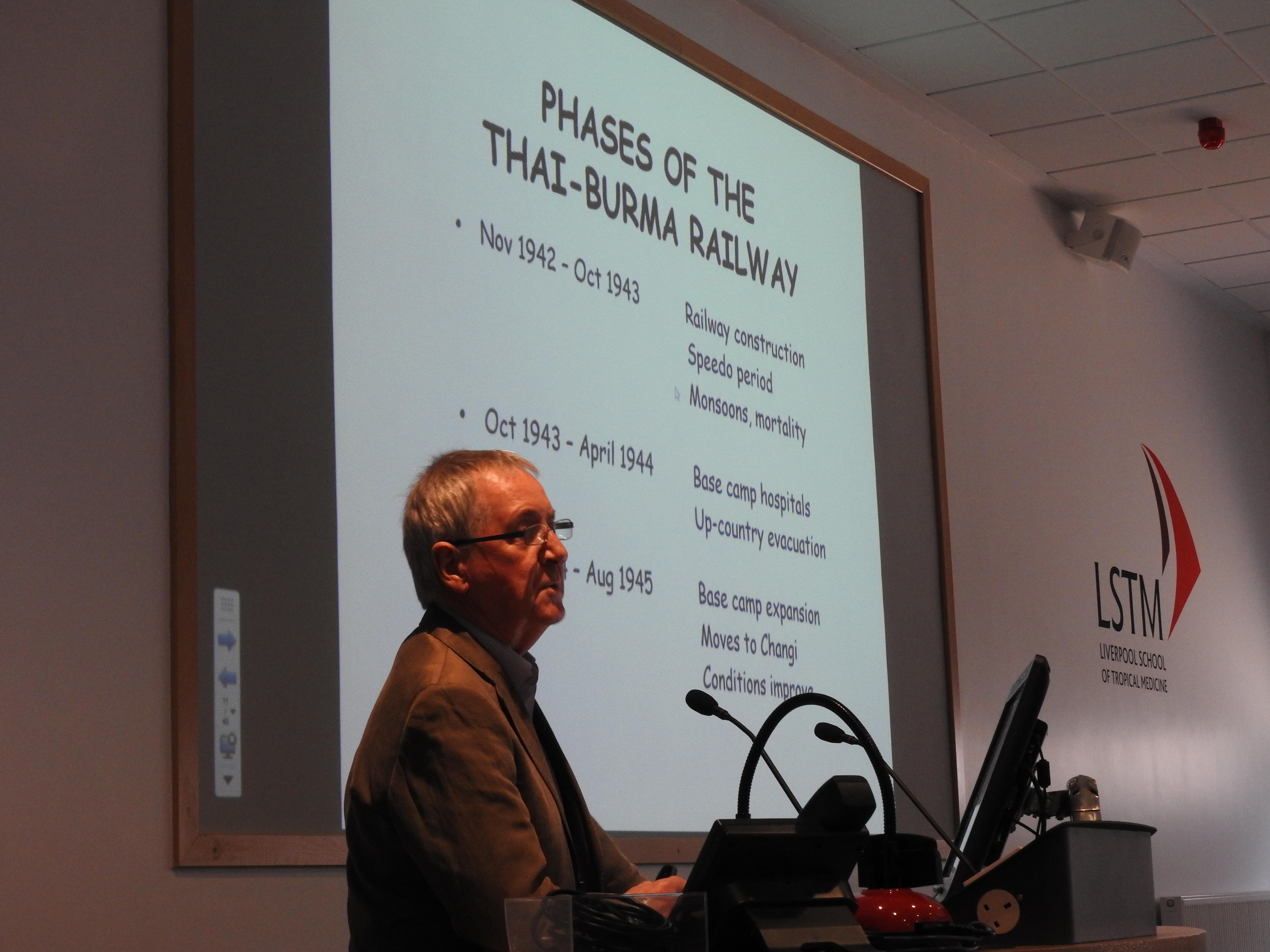
Ahead of the formal book launch of Burma Railway Medicine on 23 May at the LMI, LSTM Professor Geoff Gill gave a seminar covering the medical aspects of Far East imprisonment, as well as the unique research and clincial role played by LSTM in what has become the longest collaborative project in its history.
Between 1942 and 1945 over 50,000 British servicemen were imprisoned by the Japanese, enduring undernutrition, overwork and exposure to tropical diseases. On their return, many were treated at the Liverpool School of Tropical Medicine – over 4,000 were seen between 1945 and 1999.
This lecture explores the disease burden suffered by these men in captivity (for example malaria, dysentery, beriberi, tropical ulcer and cholera); as well as the subsequent physical and psychological aftermath. Research at LSTM showed that many of these veterans suffered post-traumatic stress disorder (PTSD), chronic Strongyloides stercoralis infections, and long-term neurological effects of vitamin deficiency. This talk covers both medical and historical aspects of Far East imprisonment, as well as the unique research and clinical role played by LSTM in what has become the longest collaborative project in its history.
Geoff Gill is Emeritus Professor of International Medicine at LSTM, and has been involved with ex-Far East POW care since the 1970s. He has led clinical and later historical research into the medical problems of this unique cohort of veterans.
More information on the formal launch of Burma Railway Medicine on 23 May can be found here